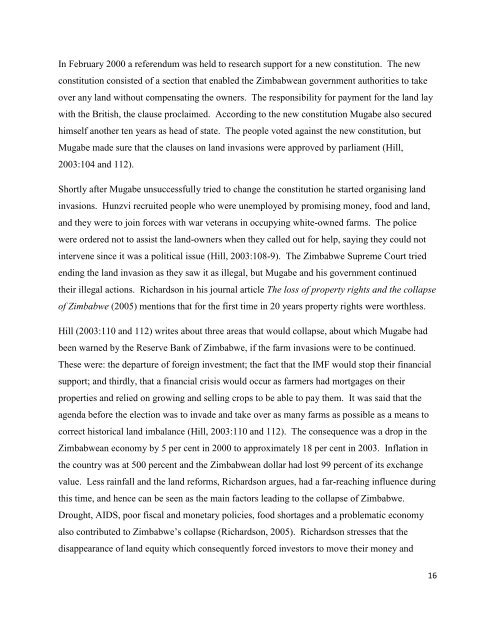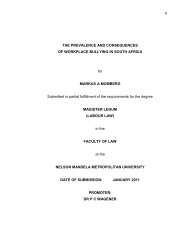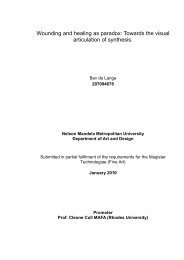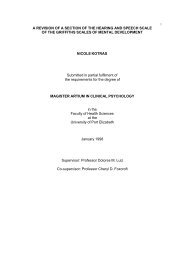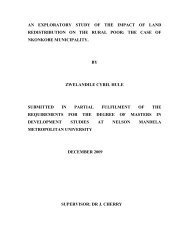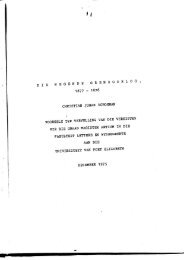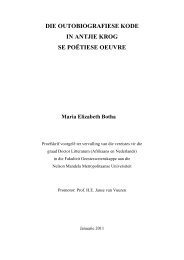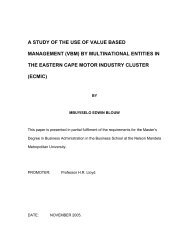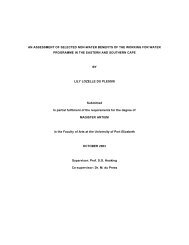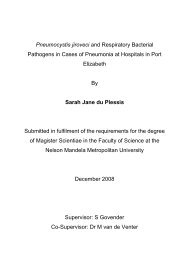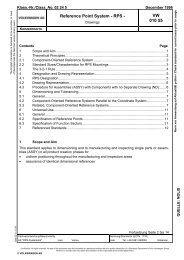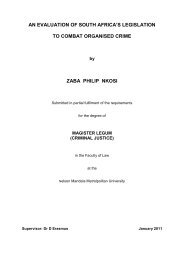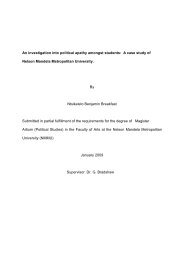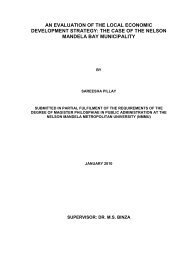Guro Lauvland Bjorknes.pdf - NMMU
Guro Lauvland Bjorknes.pdf - NMMU
Guro Lauvland Bjorknes.pdf - NMMU
Create successful ePaper yourself
Turn your PDF publications into a flip-book with our unique Google optimized e-Paper software.
In February 2000 a referendum was held to research support for a new constitution. The new<br />
constitution consisted of a section that enabled the Zimbabwean government authorities to take<br />
over any land without compensating the owners. The responsibility for payment for the land lay<br />
with the British, the clause proclaimed. According to the new constitution Mugabe also secured<br />
himself another ten years as head of state. The people voted against the new constitution, but<br />
Mugabe made sure that the clauses on land invasions were approved by parliament (Hill,<br />
2003:104 and 112).<br />
Shortly after Mugabe unsuccessfully tried to change the constitution he started organising land<br />
invasions. Hunzvi recruited people who were unemployed by promising money, food and land,<br />
and they were to join forces with war veterans in occupying white-owned farms. The police<br />
were ordered not to assist the land-owners when they called out for help, saying they could not<br />
intervene since it was a political issue (Hill, 2003:108-9). The Zimbabwe Supreme Court tried<br />
ending the land invasion as they saw it as illegal, but Mugabe and his government continued<br />
their illegal actions. Richardson in his journal article The loss of property rights and the collapse<br />
of Zimbabwe (2005) mentions that for the first time in 20 years property rights were worthless.<br />
Hill (2003:110 and 112) writes about three areas that would collapse, about which Mugabe had<br />
been warned by the Reserve Bank of Zimbabwe, if the farm invasions were to be continued.<br />
These were: the departure of foreign investment; the fact that the IMF would stop their financial<br />
support; and thirdly, that a financial crisis would occur as farmers had mortgages on their<br />
properties and relied on growing and selling crops to be able to pay them. It was said that the<br />
agenda before the election was to invade and take over as many farms as possible as a means to<br />
correct historical land imbalance (Hill, 2003:110 and 112). The consequence was a drop in the<br />
Zimbabwean economy by 5 per cent in 2000 to approximately 18 per cent in 2003. Inflation in<br />
the country was at 500 percent and the Zimbabwean dollar had lost 99 percent of its exchange<br />
value. Less rainfall and the land reforms, Richardson argues, had a far-reaching influence during<br />
this time, and hence can be seen as the main factors leading to the collapse of Zimbabwe.<br />
Drought, AIDS, poor fiscal and monetary policies, food shortages and a problematic economy<br />
also contributed to Zimbabwe‟s collapse (Richardson, 2005). Richardson stresses that the<br />
disappearance of land equity which consequently forced investors to move their money and<br />
16


